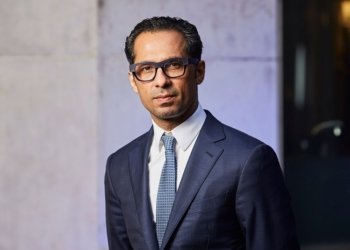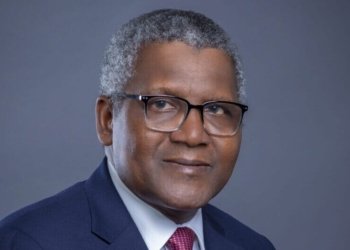What does it take to become one of the most influential business leaders in Africa and beyond?
Phuthi Mahanyele-Dabengwa stands as a towering figure in the business world. As the CEO of Naspers South Africa, she has shattered barriers and redefined leadership.
Her career is marked by groundbreaking achievements. She earned spots on prestigious lists like The Wall Street Journal’s “Top 50 Women in the World to Watch.”
This South African executive has received numerous honors. These include ForbesWoman Africa’s “Business Woman of the Year” award.
Her story is not just about personal success. It’s about paving the way for women and young professionals globally.
Key Takeaways
- Phuthi Mahanyele-Dabengwa is a prominent South African business executive and CEO
- She has received international recognition from major publications like Wall Street Journal and Forbes
- Her career represents significant breakthroughs for women in corporate leadership
- She serves as an inspiration for professionals across Africa and the world
- Her journey includes both corporate achievements and entrepreneurial ventures
- She has been honored as “Business Woman of the Year” by ForbesWoman Africa
- Her leadership style and business philosophy were shaped by early life experiences
Early Life and Educational Foundation
Educational journeys across continents can shape visionary business leaders in profound ways. This executive’s path began in challenging circumstances that forged remarkable resilience and global perspective.
Growing Up in Apartheid South Africa
Childhood experiences spanned multiple locations during South Africa’s apartheid era. The future leader attended primary school in Maseru, Lesotho before moving between Durban and Soweto.
These formative years involved navigating predominantly white institutions as a black student. Language barriers and cultural adjustments became early challenges to overcome.
Parental emphasis on education created a strong academic foundation despite systemic obstacles. This commitment would later enable international educational pursuits.
International Education Journey
At seventeen, she embarked on her first international academic experience at Rutgers University. Douglass College provided the setting for undergraduate economics studies completed in 1993.
This American education introduced new teaching methods and business concepts. The cultural exposure broadened understanding of global economic systems.
Advanced business education followed with an MBA from De Montfort University in 1996. This UK-based program deepened financial expertise and international business acumen.
Advanced Executive Education
The educational journey culminated at Harvard University‘s prestigious Kennedy School. The 2008 executive education program focused on global leadership and public policy for the 21st century.
This intensive program at the Kennedy School addressed complex public policy challenges facing modern leaders. It provided frameworks for navigating international business environments.
These diverse educational experiences across multiple countries created a unique leadership perspective. They prepared this executive for navigating complex global business landscapes.
Corporate Career Progression
The transition from international finance to domestic leadership marks a significant career evolution. This executive’s path demonstrates how global experience can prepare for impactful roles back home.
Early Investment Banking Experience at Fieldstone
Her professional journey began at Fieldstone Private Capital Group in New York City. This international investment banking firm specialized in infrastructure development financing.
She quickly advanced to become vice president at the New York office. Her work focused on complex project finance deals across various sectors.
The experience provided deep exposure to global investment strategies. This foundation would prove invaluable for future leadership roles.
Development Bank of Southern Africa Leadership
After returning to South Africa, she joined the Development Bank of Southern Africa. She took on the role of head of Project Finance South Africa.
This position involved overseeing major infrastructure projects across the region. Her work supported economic development through strategic financing.
The role at the development bank expanded her understanding of African business landscapes. It prepared her for even greater leadership challenges.
Shanduka Group: From Managing Director to CEO
In 2004, Mahanyele-Dabengwa joined Shanduka Energy as managing director. The company was founded and chaired by Cyril Ramaphosa.
Her leadership quickly produced significant results within the energy sector. This success led to her promotion to CEO of the entire Shanduka Group.
As chief executive officer, she oversaw the investment holding company’s diverse portfolio. Her strategic decisions shaped the group’s direction during a critical growth period.
This corporate progression built a strong foundation for future entrepreneurial ventures. It demonstrated her ability to lead across different business environments.
Entrepreneurial Ventures and Sigma Capital
Building on corporate success requires courage to venture into new territory. This executive’s next move demonstrated exceptional business vision and leadership independence.
Founding Sigma Capital in 2015
In 2016, she made a strategic decision to leave Shanduka Group. This move marked her transition from corporate leadership to entrepreneurship.
She established Sigma Capital as an investment holding company. The firm was actually formed in 2015 before her official departure.
As co-founder and Executive Chairperson, she shaped the company’s direction. Her role involved setting investment strategy and overseeing portfolio management.
This entrepreneurial step represented a significant career shift. It showed confidence in her ability to build a successful investment business.
Investment Strategy and Focus Areas
Sigma Capital developed a clear investment philosophy under her leadership. The firm focused on identifying high-potential opportunities across various sectors.
Her previous corporate experience greatly informed the investment approach. She leveraged her knowledge of African markets and global business trends.
The company targeted growth sectors within South Africa and broader African markets. Investments spanned technology, consumer goods, and industrial development.
Building a new investment firm presented both challenges and opportunities. Market positioning required careful strategy and relationship building.
Portfolio companies benefited from her extensive network and business acumen. Performance reflected her strategic vision and hands-on leadership approach.
This entrepreneurial phase proved crucial for her professional development. It prepared her for the subsequent role at Naspers by expanding her executive capabilities.
Her move from corporate executive to entrepreneur inspired many women in business. It demonstrated that African leaders can successfully create their own investment platforms.
Current Leadership Role at Naspers
Reaching the pinnacle of corporate leadership requires both exceptional skill and perfect timing. This executive’s journey culminated in a landmark appointment that reshaped South African business leadership.
Historic Appointment as CEO in July 2019
In July 2019, a groundbreaking moment occurred in South African corporate history. She became the first black female CEO of Naspers South Africa.
This appointment marked a significant milestone for diversity in leadership. It represented progress in the business world’s commitment to inclusion.
Her promotion to CEO demonstrated the company’s confidence in her abilities. It showed that qualified women could lead major corporations.
Strategic Vision for Naspers South Africa
Her leadership approach combines global perspective with local understanding. She brings diverse experience from banking, investment, and entrepreneurship.
This background informs her strategic decisions for the media and technology conglomerate. She focuses on sustainable growth and innovation.
Her vision includes expanding digital services across South Africa. She aims to make technology more accessible to all communities.
Breaking Barriers as First Black Female CEO
Being the first black female CEO carries both honor and responsibility. She represents possibilities for other women in business.
This achievement inspires young South African professionals pursuing their career dreams. It shows that glass ceilings can be broken.
Her leadership style emphasizes mentorship and development. She creates opportunities for the next generation of leaders.
Beyond her CEO role, she serves as Executive Director on the Naspers Board. This position became effective April 2025.
She also holds an independent directorship at Vodacom Group. Her expertise shapes telecommunications strategy in the region.
Additional roles include advisory positions at Stellenbosch University’s business school. She contributes to business education development.
Her international influence extends through the United Nations Global Compact Network SA. She also serves on the BRICS Business Council in South Africa.
These diverse responsibilities demonstrate her commitment to broader business community development. She impacts corporate governance beyond her primary role.
Recognition and Awards
Exceptional leadership often garners widespread acknowledgment from prestigious institutions worldwide. This executive’s career achievements have been celebrated through numerous honors that highlight her global impact.
International Business Accolades
Global recognition began with her selection as a Global Young Leader by the world economic forum in 2007. This honor identified her as one of the top women world leaders under forty.
The world economic forum recognition led to involvement in dignity initiatives across developing nations. Her work focused on economic empowerment through strategic business development.
In 2008, The Wall Street Journal featured her among the “top women world” leaders to watch. This placement among fifty global influencers signaled her rising international prominence.
Africa Investors acknowledged her as “Leading African Woman in Business” during 2012. This award celebrated her contributions to continental economic growth.
Forbes and Wall Street Journal Recognition
Major media recognition culminated with the 2014 ForbesWoman Africa woman year award. This business honor recognized her outstanding leadership and entrepreneurial achievements.
The woman year award from Forbes highlighted her transformative impact on African business landscapes. It positioned her among the continent’s most influential executives.
Fortune magazine further cemented her status by ranking her number 42 on their 2020 Most Powerful Women International list. This placement among global leaders reflected her substantial corporate influence.
The All Africa Business Leaders Awards presented another woman year award in 2019. This recognition came during her groundbreaking tenure as Naspers CEO.
University Honors and Distinguished Awards
Educational institutions have repeatedly honored her professional accomplishments. Rutgers university inducted her into their Hall of Distinguished Alumni in May 2016.
This rutgers university honor recognized her exceptional career achievements following undergraduate economics studies. It celebrated how her mba and global experience shaped her leadership path.
The Douglass Society at rutgers university awarded her “Distinguished Achievement” in 2013. This followed her 2011 Rutgers Vision of Excellence Award.
Earlier recognition included the 2009 “Most Influential Woman in Government and Business – Financial Services” award. These honors collectively demonstrate her impact across multiple sectors.
Her south african leadership and international business acumen have inspired professionals worldwide. These numerous accolades reflect decades of transformative work across continents.
Conclusion
Her journey shows how education builds strong leaders. An MBA and time at Rutgers University gave her a global view.
She moved from investment banking to becoming a CEO. This path broke new ground for women in business.
Her story inspires young professionals in South Africa and across the world. She proves that with hard work, you can shape your own career.
Phuthi Mahanyele-Dabengwa’s legacy is about more than success. It is about opening doors for others to follow.
FAQ
What is Phuthi Mahanyele-Dabengwa’s current role?
She is the CEO of Naspers South Africa, a historic appointment she received in July 2019, making her the first Black female to hold this position.
What was her career path before leading Naspers?
Her corporate career includes significant roles in investment banking at Fieldstone, leadership at the Development Bank of Southern Africa, and serving as CEO of the Shanduka Group.
Did she start her own business?
Yes, she is the co-founder of Sigma Capital, an investment firm she launched in 2015 that focuses on project finance and development in South Africa.
Where did she receive her education?
She holds an MBA from Rutgers University and has completed advanced executive education programs at Harvard University’s Kennedy School of Government.
What kind of recognition has she received for her work?
She has been honored with numerous awards, including being named one of the Top Women in the World by the World Economic Forum and receiving the Woman of the Year award from several institutions.
What is her leadership style known for?
Her leadership is recognized for its strategic vision in global business, a strong focus on 21st-century public policy, and a commitment to fostering development in southern Africa.
How has she contributed to women’s leadership?
By breaking barriers as a first in her CEO roles and through her active participation in global forums, she serves as a powerful role model for women in business and investment.






